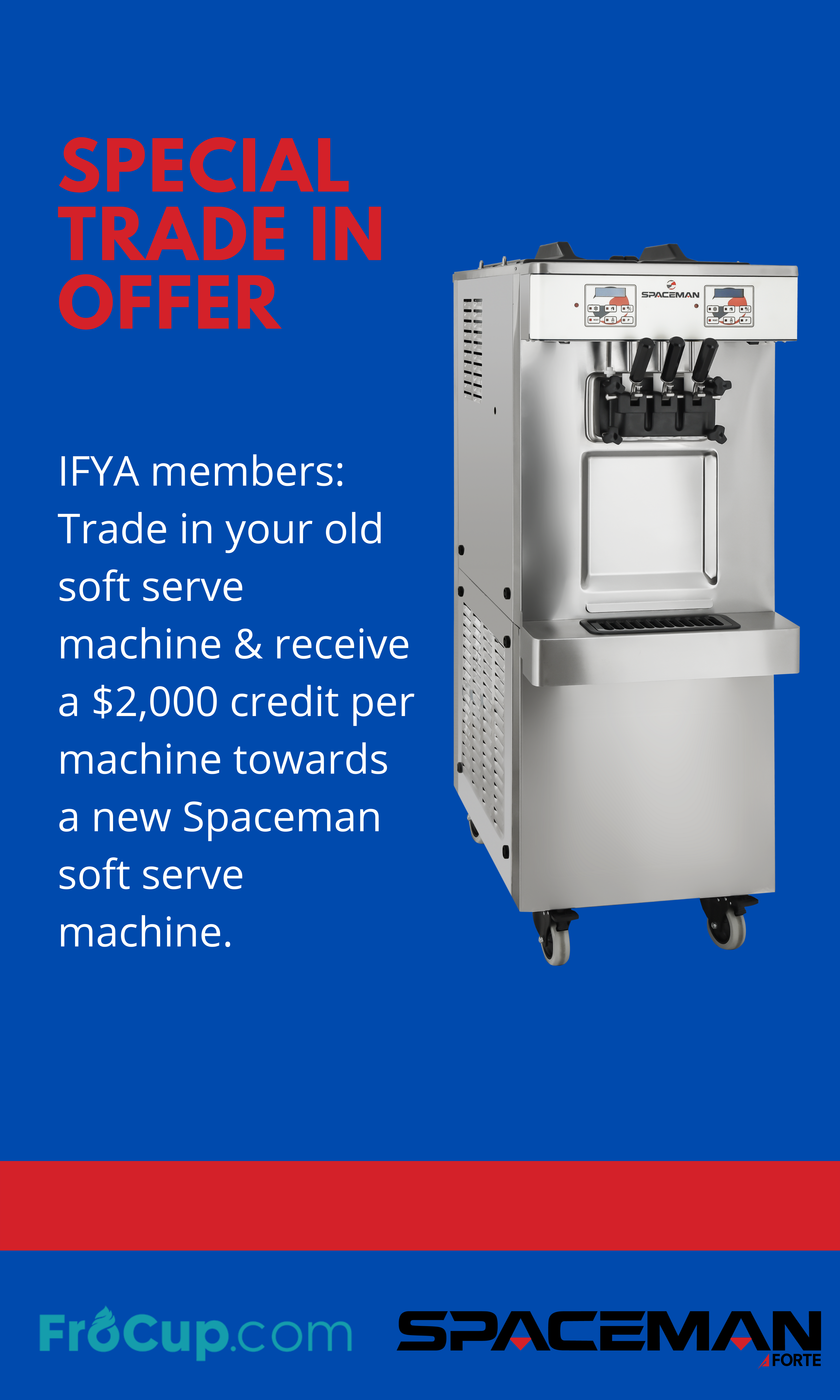 Why Tariffs Matter for Dessert Shops
Why Tariffs Matter for Dessert Shops
by Tyler Allison, VP of Operations at FrozenDessertSupplies.com and IFYA Packaging and Branding Expert
Tariffs can have a substantial impact on costs, particularly for businesses that rely on imported products. Whether it’s napkins, toppings, cleaning products, machines, cups, spoons, or other supplies, many components of the products dessert shops use every day come from outside of the USA. Because of this, shop owners may find themselves facing unexpected cost increases as suppliers pass along the higher fees they pay for goods and raw materials. In an industry with thin margins, this can quickly add up.
How Tariffs and Inflation Are Affecting Costs
Even if your supplies are sourced entirely within the United States, the reality is that many vendors rely on components or materials from overseas. These parts, whether it’s packaging materials or specialized equipment, are subject to tariffs. For example, depending on the tariff rate, it could increase the cost of an imported material by as much as 10-25%. This percentage is added directly to the material cost of the product being imported, which means your supplier may have to pass those costs along to you. Add to that the impact of general inflation, and businesses are finding that price increases are a reality that can no longer be ignored.
As business owners, we all know how challenging it is to balance price increases while keeping our customers happy. It’s hard enough to forecast your expenses when you’re already juggling the daily operations of a dessert shop. The added unpredictability of fluctuating costs—whether due to tariffs or inflation—makes budgeting even harder.
Strategies for Dessert Shops to Minimize the Impact
- Bulk Purchasing & Forecasting – One effective strategy is to anticipate price hikes and place bulk orders before costs increase. Forecasting your needs helps ensure that you’re locked into prices, which is especially crucial when suppliers are unsure how tariffs will evolve. Don’t be afraid to call your suppliers and ask them to work things out with you. They are likely “figuring it out” as well and want you to succeed. Your success is their success.
- Product Differentiation – When prices are increasing across the board, this may be an opportunity to offer something that sets you apart. Lean into creating a “premium” experience or product that justifies the increased price and resonates with customers. A memorable experience can drive repeat business, even in uncertain times. I’ve personally seen this work with shop owners who lean into their branding on products, shirts, signs, etc. This not only helps in differentiating your business but also builds loyalty and community around your brand.
- Tighter Grasp on Inventory Management – With rising costs, it’s more important than ever to reduce waste and optimize your ordering process. Keep a close eye on how you and your team are ordering. Take advantage of your software or spreadsheets to revamp it to how it will most impact you. Reduce waste when using your product, and put processes in place for tracking your inventory tightly.
The Bigger Picture: What’s Next for the Industry?
Looking ahead, it’s impossible to predict exactly how tariffs will evolve. But one thing is clear: dessert shop owners need to stay agile and informed. Maintaining relationships with suppliers who understand these challenges is key to surviving and thriving in a market that is constantly shifting. At the time of writing this blog, President Trump has announced that another 10% tariff will hit all Chinese imported goods that will go into effect on March 4th. This is after a 10% tariff was enacted early February. Tariffs are likely here to stay, so staying informed and adapting is critical.
Staying Ahead in a Changing Market
At the end of the day, staying ahead of rising costs is about taking a proactive approach. Whether through bulk ordering, diversifying your supply base, or partnering with suppliers who are well-positioned to handle tariff-related price increases, there are ways to minimize the impact on your bottom line.
As business owners, we understand the need to adapt and find solutions to challenges like rising prices. Suppliers who can keep you informed and ahead of the curve can make all the difference, allowing you to stay focused on what you do best—running your business.
If you want to talk about tariffs or how raising prices are impacting your business, reach out to me. I’ve worked with hundreds of shops around pricing strategy specifically and how they can control their costs. No charge to you, just two people talking business. (480) 428-1999 – Ask for Tyler or email me at [email protected]. I would love to be of help.





